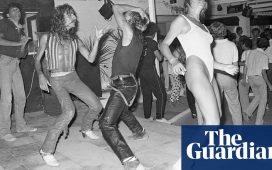Since co-writing Keith Richards’s award-winning, bestselling 2010 memoir, Life, James Fox, 75, has become one of Britain’s most successful ghostwriters. He became a journalist at 19, working for the Daily Nation in Kenya and the Drum in South Africa in the 1960s, before exploring culture, politics and celebrity for the Observer, the Sunday Times and Vanity Fair. He has also written two novels: 1982’s White Mischief and 1998’s The Langhorne Sisters. Look Again, his biography with photographer David Bailey, came out last month.
In 2014, the Evening Standard’s Londoner’s Diary called you “the wild man’s ghostwriter of choice”. How does that sit with you?
Did they really? I guess that started with Keith, and although I’ve known him now for over 30 years [Fox wrote a profile for the Sunday Times in 1973, the first ever with the guitarist], he actually was a wild man back then. I’d been obsessed with guitar playing since I was 12, so I approached him wanting to speak about that, which worked as a way in. We then became friends, which was quite dangerous at the time, for various reasons.
You said on a recent podcast that your friendship involved what you euphemistically describe as a few “crushed aspirins”.
Yes, there were definitely some substances passed down the channel. But I knew from the very beginning that he could tell stories brilliantly and had a fantastic memory, so I kept on at him. Those stories had to get out. When his manager finally decided it was time, it had only taken 20-odd years.
David Bailey didn’t know you before asking you to work with him. He’s known for being cantankerous. How did you approach that job?
When I went into his office to meet him and his assistants, I said the only clause I want adding to this contract is a civility clause, and everyone fell about laughing. That helped. He had a very dysfunctional background – abandoned by his mother, an unfaithful father, so he was always fighting, physically and mentally. I found his story very moving. People from the East End back then don’t give stuff away or make themselves vulnerable, but it was that Teflon coating that I found fascinating. To come from there and then deal with people at Vogue who had probably never spoken to people with his accent, and get his way.
You interviewed lots of Bailey’s former partners, including his ex-wife Catherine Deneuve and model Penelope Tree, which is an unusual approach for autobiography. Why was this necessary?
Because his version of events was one he was comfortable with, a convenient version that left out a lot. The women in his life are also very interesting, intelligent and articulate. Penelope Tree was key [Fox interviewed her alongside Bailey]. She said to David: “This is your book – you have to be honest.” And he said: “Have you ever known me to be dishonest?” She said: “No, but I have known you to change the subject.” That’s one of his ploys.
Why do people like Bailey get mythologised?
Mythologising is what the 1960s were about. I think people look back on it now – at least I do – as a nightmare. Sexual liberation was very painful. The idea that jealousy had been cancelled [within sexual relations] was deeply hurtful, especially to women. But I didn’t get that sense of pain when people talked about Bailey. Penelope had a rough time with him, but she’s still fond of him and is friends with him now.
How do you begin a ghostwriting project?
Just get a conversation flowing. Never have a chronological clipboard in your mind going next-next-next. Sometimes you have to have the same story again and again. By the fourth time, you’ll get the detail. These stories have been flattened and deadened over time. You have to humanise them again.
How do you ghostwrite in a person’s voice effectively?
I’m very attuned to the way people talk, which I think goes back to my childhood. I had a very bad stammer when I was 12 or 13; my time was spent observing people talking because I couldn’t. I loved how everyone had their idiosyncrasies. I still love that now. Bailey has these East End expressions and this intelligence, and if you mix those two things you get this economy and snappiness. Keith has great cadences that just fit into prose. I read Keith’s book back to him out loud before we finished it, and he was listening to the sounds of the sentences, not the facts, taking a musical view. The sounds are what writing is really about.
How do you spend your working day as a writer?
Momentum is the crucial thing. I get up as early as I can before the interruptions begin – the doorbell ringing, the dog needing a walk. Get an early start, basically. And carry on!
What books are on your bedside table?
Oh God, lots, all half-read. Anne Applebaum’s wonderful Twilight of Democracy: The Failure of Politics and the Parting of Friends, about what’s exactly going on now in politics. Carmen Callil’s Oh Happy Day about her ancestors in Australia. Joan Didion. Lots of Lapham’s Quarterly, this incredible magazine that comes out of New York. Geert Mak’s In Europe, which I keep rereading. It’s unparalleled in its detail and history.
What book would you give to a young person?
Poem of the Deep Song/Poema del Cante Jondo by Federico García Lorca, a bilingual introduction to his genius. It was his first major work, written aged 23. Beautiful, painful lyrics of love, death, alienation. Can’t go wrong.
Whose memoir would you like to write next?
After Damien’s [Fox is currently working on an autobiography with Damien Hirst], I’ve got another project I can’t talk about yet. After that, it’d be nice to have a woman to write about, to experience a very different history. That is if I’m going to ghost – I might write something else – but one thing does seem to lead to another.
• Look Again by David Bailey is published by Pan Macmillan (£20). To order a copy go to guardianbookshop.com. Delivery charges may apply








